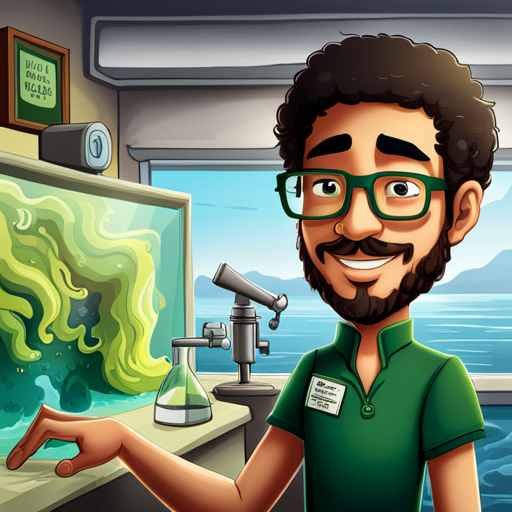Algae biofuels have long been considered a promising alternative to traditional fossil fuels due to their potential for rapid growth and high oil content. However, despite the numerous advantages of algae-based biofuels, several key challenges remain in scaling up production and achieving cost competitiveness with fossil fuels.
One of the primary economic challenges facing algae biofuel production is the high production costs associated with cultivating and processing algae biomass. Algae cultivation requires suitable land, water, carbon dioxide, nutrients, and sunlight. In addition, harvesting and extracting oil from algae biomass can be energy-intensive and expensive processes.
Currently, the cost of producing algae biofuels is significantly higher than that of conventional fossil fuels. According to a study by the National Renewable Energy Laboratory (NREL), the estimated cost per gallon of algae biofuel ranges between $7.50 and $23.50, compared to around $2.50 for petroleum-based diesel fuel. The high production costs are primarily due to the energy required for harvesting and extracting oil from algae biomass and the low overall yields of oil per unit area.
To overcome these economic challenges and achieve cost competitiveness with fossil fuels, advancements in technology and process optimization are needed to increase the efficiency of algae cultivation, harvesting, and oil extraction processes. For example, improving the strains of algae used for biofuel production could enhance growth rates and oil content, thereby increasing overall biomass productivity.
Another challenge in scaling up algae biofuel production is related to the availability of suitable land and water resources. Algae cultivation typically requires large areas with access to sunlight, water, carbon dioxide, and nutrients. The requirement for large-scale land resources may compete with other land uses such as agriculture or urban development.
In addition, water scarcity is a growing concern worldwide, particularly in regions where algae cultivation may be most viable due to abundant sunlight. As a result, there is an increasing need to develop technologies that enable the efficient use of water resources in algae cultivation, such as closed-loop systems that recycle water and nutrients.
Carbon dioxide is another critical input for algae growth, and sourcing sufficient quantities of CO2 can be a challenge for large-scale algae cultivation. While capturing CO2 emissions from industrial sources such as power plants or cement factories is a potential solution, the infrastructure required to transport and store CO2 can be expensive and complex to implement.
Furthermore, the environmental impact of large-scale algae cultivation must be considered. While algae biofuels have the potential to reduce greenhouse gas emissions compared to fossil fuels, the production process can still generate emissions through energy use in cultivation, harvesting, and processing. Additionally, there are concerns about the potential for nutrient pollution from fertilizer runoff, which could harm aquatic ecosystems.
Despite these challenges, there is significant potential for innovation and technological advancements to overcome these barriers and enable the large-scale production of cost-competitive algae biofuels. For example, research is ongoing to develop genetically engineered strains of algae with higher oil content and growth rates, which could significantly improve biomass productivity.
Additionally, advances in biorefinery techniques could enable the production of valuable co-products alongside biofuels, such as animal feed or chemicals, which could help offset production costs and improve overall economic viability.
In conclusion, while algae biofuels offer a promising alternative to fossil fuels, significant challenges remain in scaling up production and achieving cost competitiveness. To overcome these challenges, continued research and investment in innovative technologies are needed to improve the efficiency and sustainability of algae biofuel production processes.


